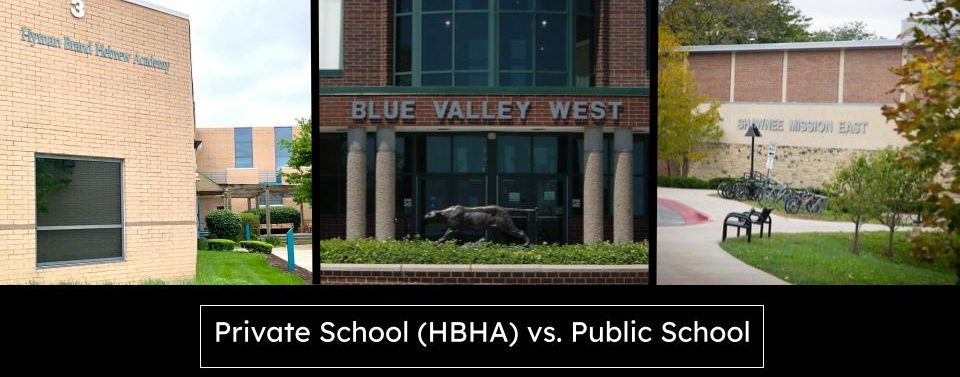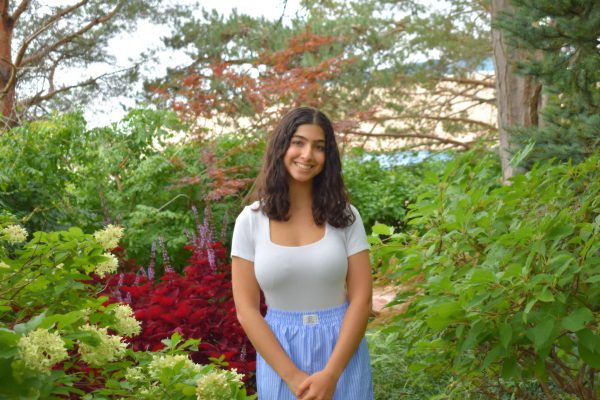Since joining HBHA in the first grade, I’ve seen the beauty of HBHA and have grown closer to my religion. Throughout my journey, with numerous classmates who have left HBHA, I’ve also experienced jealousy of what some of my peers at other schools experienced. After conversations with friends at HBHA, Blue Valley West, and Shawnee Mission East, (all located in Overland Park, Kan.) I began to understand the benefits we, as HBHA students, can derive from the school.
Freshman Ben Rosenthal attended HBHA for Kindergarten, then went to a public school for a large portion of his academic career. However, he came back to HBHA in sixth grade and has attended ever since then.
Rosenthal says, “The environment [at HBHA] is welcoming… you’re not really welcomed at a public school. You have your little friend group [in public school], but you’re not really welcomed by the teachers or others.”
Another advantage I value that follows a small student population is the individualization of the curriculum. Teachers at HBHA are able to focus on each student’s individualized academic issues and achievements because class sizes are compact.
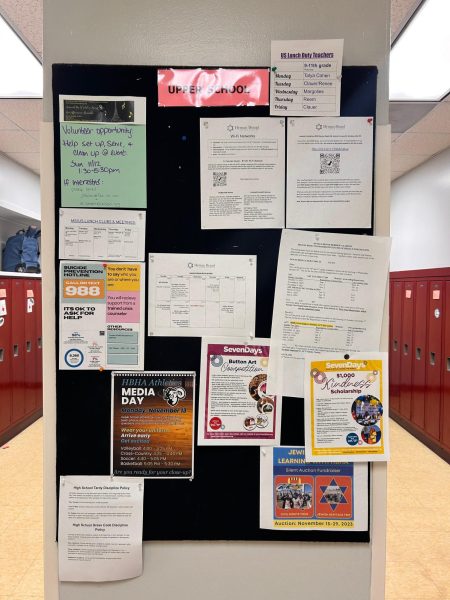
Despite having an accepting Jewish community surrounding me, I still felt times of desperation to leave HBHA and go to a public school. Whether it was from lack of social chances to stressful times, I’ve had my fair share of wishful moments. I’ve seen from friends, and even social posts, how different schools compare to ours and the exciting events they have constantly. From high-valued sports teams and clubs to numerous original class dynamics, I felt a bit jealous as it was as if I was missing out on life opportunities.
Blue Valley West sophomore Charlotte Shafton attended HBHA until ninth grade; she has been attending a public high school for the past two years. Shafton, much like Rosenthal, has experienced both HBHA and public school environments. Public schools, because of their larger size, are able to offer a variety of subjects. This gave Shafton the opportunity to join baking and ceramic electives.
Shafton says, “Blue Valley West, and all other public schools my friends go to, offer many more electives and have different levels of core topics.” At HBHA, Honors English is encouraged for 9th-10th and AP is allowed only for the 11th-12th grades. Blue Valley West, as well as other public schools, offers AP courses to the students throughout their entire high school career.
Junior Lucy Warner, a Shawnee Mission East student, is an active participant in the school’s programs and clubs. Taking part on the dance team, choir, Women in Leadership cohort, and National Honor Society, Warner is using the variety of opportunities to her advantage.
While HBHA may not have as large a range of offered opportunities, the size of HBHA ensures these opportunities are more accessible for each student. Warner explains how competitive each club is. Cuts, removing people from the group, and tryouts are done with no mercy.
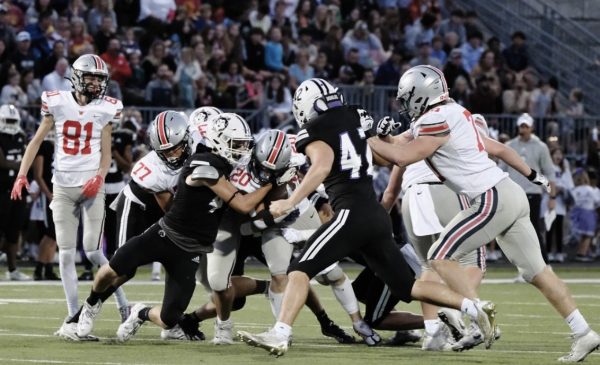
Many students prefer public school for a more lively sports culture but aren’t qualified for the team because of the school’s size. Rosenthal states, “A lot of public school kids don’t get into sports [because of the competition].” He continues to explain how it is difficult to fill a role in public school sports from the competitiveness and lack of spots.
If I were to have chosen to leave HBHA, I fear I could have lost my connection to Judaism. HBHA emphasizes the importance of the Jewish religion and makes it their goal for each activity to incorporate religious aspects. On school trips, similar to the Civil Rights Trip I will be attending this upcoming semester, our administration strives to make sure we still participate in Shacharit, morning prayers, and follow Shabbat rules consistently. For Shabbat/Holiday family events, the grade teachers incorporate Hebrew passages and short Dvar Torahs for the children to speak aloud to their family members.
Learning the Hebrew language is also an important factor in my education. Most, if not all public schools (in Kansas), don’t offer the language for students. Hebrew is a language which connects each practicing Jew. Whether it’s through reciting prayers or ancient texts, a union is created by the language.
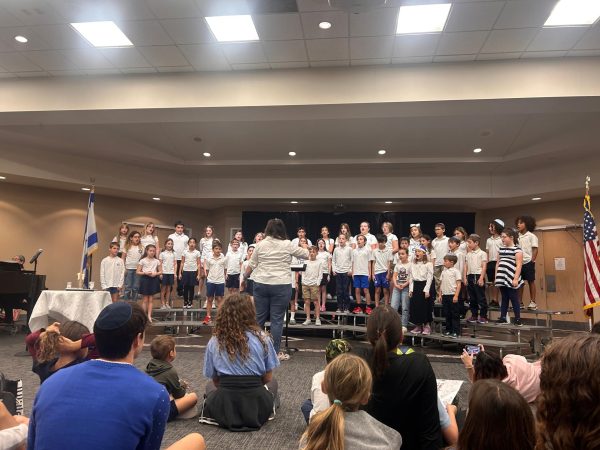
(Photo by Avital Mullokandova)
The immersion into a Jewish educational setting every day creates a different level of connection than involvement in a Jewish youth group could provide. Youth groups provide a chance to build connections with Jewish peers rather than educating on the religion. While these events are extremely valuable, my Jewish education needs would not be met; it doesn’t hold the same standards HBHA does when it comes to teaching Judaism.
The financial impact of an HBHA education is often a deciding factor in choosing a school. While it has been enlightening to compare the different educational opportunities at HBHA to public schools, it is also an extremely privileged conversation to have in the first place.
The community centric school and unabashedly Jewish environment at HBHA has been increasingly important in my school career. While hearing about the different opportunities has shed a light on other school experiences, I am still grateful for the years I have spent at HBHA, and look forward to the next two and a half to come.

